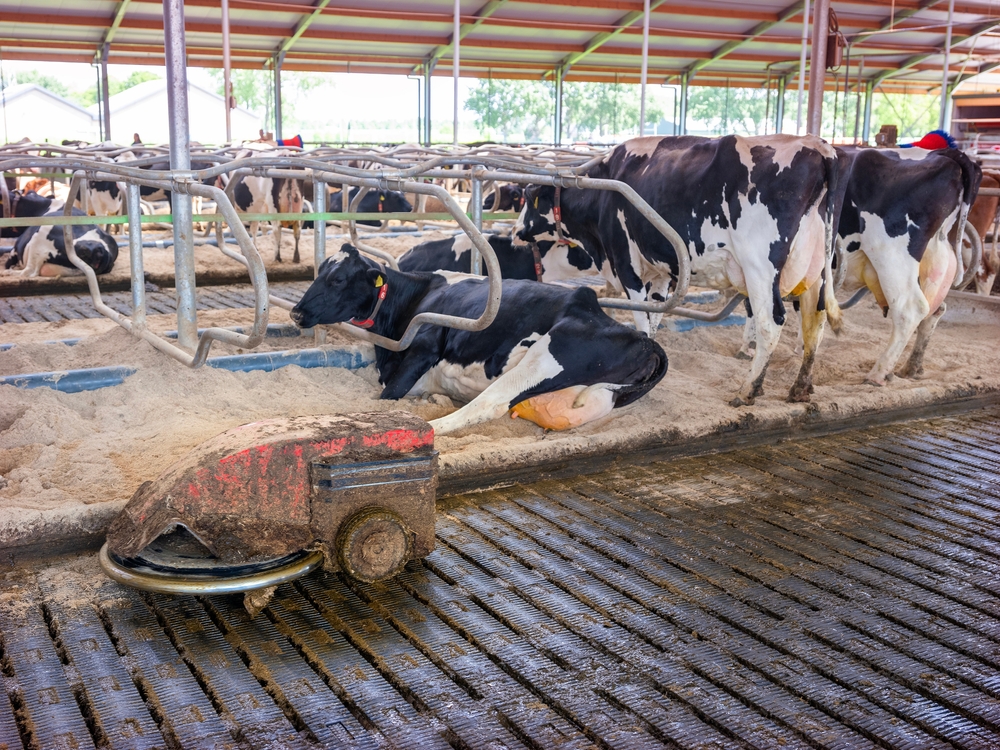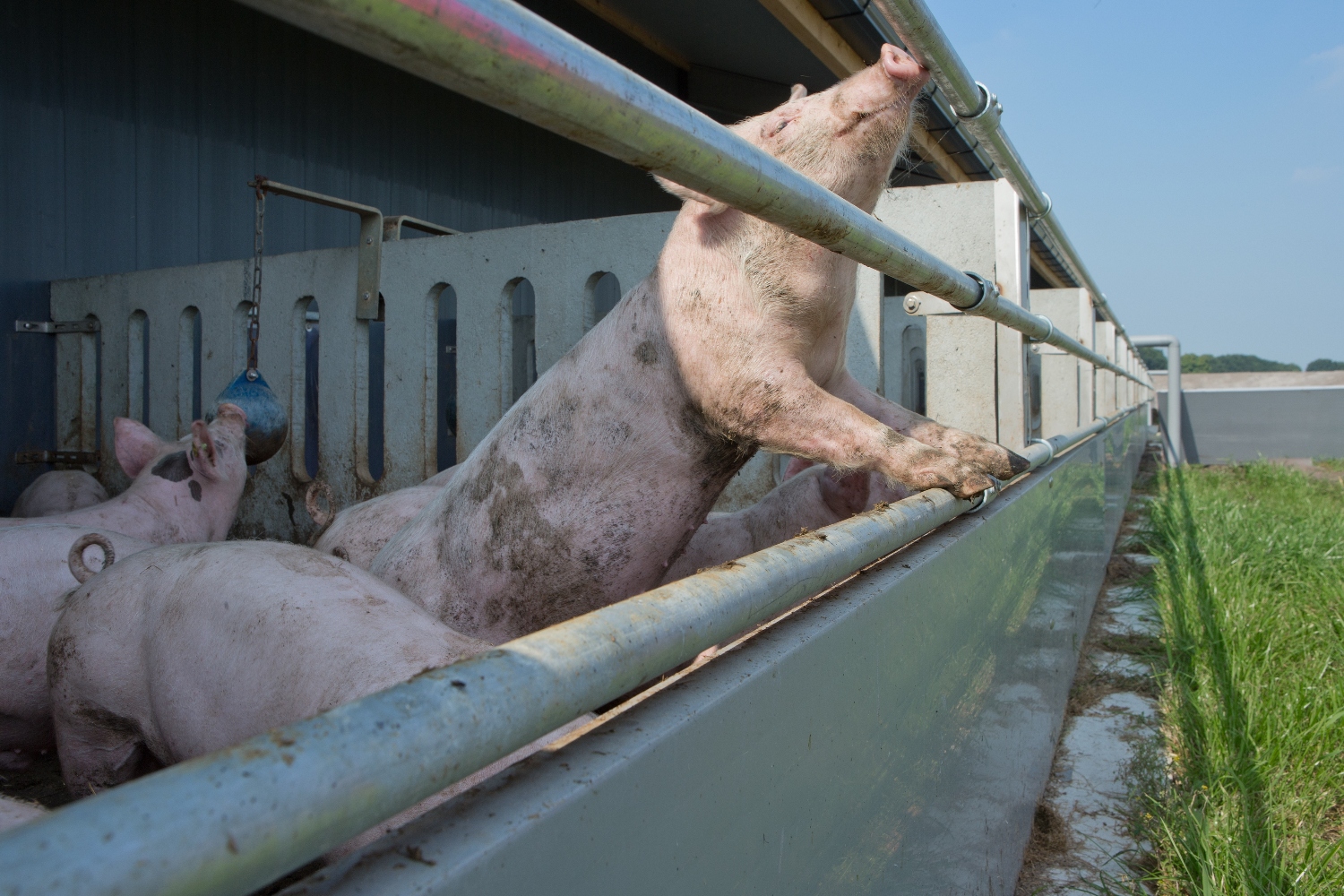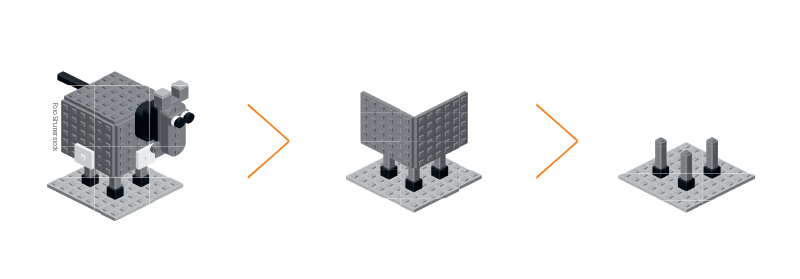Ernst van den Ende switched from Plant Sciences to Animal Sciences over one year ago. His new field of work is rather more sensitive and controversial, as illustrated last year when a protest by meat-lovers at the vegetarian AID barbecue caused a fuss. But enough has been said on that subject. It is time to consider the other dilemmas facing the Animal Sciences Group (ASG) and its new director, and see what the future has in store.
‘Do you know what question I got asked most after moving to ASG?’ says Van den Ende at the end of the interview with Resource. ‘What I would be doing with my shirts.’ As the director of the Plant Sciences Group, he was known for wearing shirts with botanical prints. He has them in all kinds of variants: with flowers, leaves, trees, tendrils — you name it. He still wears them in his new job. ‘I can’t really imagine myself walking around in a shirt with cow or pig patterns. Although I do now have a nice one with shells on it,’ he laughs. So his wardrobe does reflect his new field of work a little.
But enough small talk. Van den Ende has plenty to say about more serious topics too. Because perhaps more than any other WUR domain, Animal Sciences is a field in flux with changing ethical perspectives and fierce public debates. From nitrogen to bird flu, from lab animals to barn fires, from having the North Sea full of wind turbines to using artificial intelligence on farms, ASG has to deal with these issues and the associated dilemmas every day. Van den Ende has been in his new job as director for some 18 months now. Before then, he was already involved in certain animal-related affairs as a member of the Wageningen Management Board. For example, he addressed the Farmers Defence Force when the campaign group turned up on campus demanding answers. Time to talk about the topics that have defined his role at ASG to date.
Reputation
‘The Animal Sciences Group is mainly known for its work for and on livestock farming. I know some people within WUR and elsewhere see that as suspicious. Staff sometimes feel that they have to justify the fact that they work here. That makes me uncomfortable. The way I see it, the greater the tension, the greater the need for a transition and the more important our research is. Also, the people at ASG are much keener on change than they get given credit for. It really is an image thing. So I think we should be much more proactive in telling other people what it is we do, what we want to do, why that matters and what we see as the future for animals and animal systems.’
Ambition
‘I want ASG to be recognized as a partner for animal-friendly, sustainable livestock farming. And as an expert in the function and behaviour of animals — not just farm animals in barns but also animals in ecosystems. That is already the case for marine ecosystem management and biodiversity, where Marine Research is doing inspiring and relevant work. I have a similar role in mind for ecosystems on land, as our expertise in animals is also hugely valuable in that context. In addition, ASG knows a lot about what happens in human-animal interactions with respect to health. Take bird flu, Q fever and various other big health problems. These are the three themes ASG plans to work on in the next few years, often in partnership with other players.’
Linking knowledge
‘If we get better at linking knowledge, WUR can make more of a difference. For example, we need the ethics specialists of Social Sciences for issues surrounding animal-friendly livestock farming. And next time there is a commotion about the food situation in the Oostvaardersplassen nature reserve, how about bringing in our Animal Nutrition experts as well as the ecologists of Environmental Sciences? I’m busy at the moment putting out feelers to get such collaborations set up. The more pressure there is from society, the more reason for us to join forces.’
Independent research
‘We need to constantly safeguard our independence. If you ask us what we think about a particular topic, you will get an honest answer. In my experience, that wasn’t always easy in the past, especially in assignments for the government. Sjoukje Heimovaara recently raised this issue in the NRC newspaper.
We need to constantly safeguard our independence
When you do projects for companies or NGOs, you can have your independence documented in the contract. But when we work for the Ministry of Agriculture, Nature and Food Quality, it’s through a grant and it’s more common then for policy officers to want all kinds of things. But I stand up for my staff and I won’t allow that to happen. It is not always easy, but it is extremely important. Independence is the be-all and end-all, especially when the public debate heats up.’
Unwelcome attention
‘People whose research touches on emotive issues can be under a lot of pressure and attract unwelcome attention. I understand it when people say they just want to carry on quietly with their research in the institute. I too have changed my views on this after a few unpleasant experiences. I no longer put my mobile phone number under my emails, for example. I don’t do TV interviews from home any more either, whereas I wouldn’t have given it a second thought in the past.’
National versus international
‘In my opinion, this is the big difference between Plant Sciences and Animal Sciences. In the Plant Sciences Group, I could easily use the same narrative for the national and international contexts, whereas they are two completely different worlds in Animal Sciences. Internationally, we are seeing an incredible increase in the demand for animal protein. Should we then start proclaiming it’s not possible, that everyone needs to become vegetarian? Or should we be the scientific partner that helps think up ways to minimize the harmful effects? I find that quite a dilemma. I feel a different responsibility in the national debate. Here in the Netherlands, I think we are quite capable of making the transition to new kinds of agriculture as long as we can get consumers on board. If not, we’ll end up shifting the problem abroad.’
Less meat
‘I see animal protein as one component of a desirable consumption pattern. But we need to eat much less of that than we do now. We need to eat less, full stop. The Dutch currently eat 130 grams of protein per day and that needs to come down to 70 grams. What’s more, two thirds of our protein is from animals and that needs to be one third. So that would require a completely different setup for your food system, putting animals in quite a different position.’
Animal-friendly livestock farming
‘Many people criticize intensive livestock farming for a variety of reasons, and that is fine. For a long time, efficiency and productivity were prioritized. I want that to stop: respect for animals needs to get top priority. That has lots of implications for the design of barns, how we treat animals and how many animals are farmed. There are no simple solutions. Take respect for pigs in pig farming. In my opinion, that means no more tail docking, for instance. But how do you then deal with the underlying problem of tail biting?
I no longer put my mobile number under my emails
People assume the problem will disappear of its own accord on a nice organic farm with fewer pigs per square metre. But it’s not that simple. All sorts of factors play a role, such as the climate, diet and social structures, which are much more complex in pigs than we thought in the past. To resolve this problem, you need both a profound understanding of the function and behaviour of the animals and knowledge of the various pig farming systems. I want to get people on board with this.’
Students
‘You’d expect them to stop coming given current attitudes to livestock farming, but nothing could be further from the truth. The latest forecast is for 140 first-year students, and that’s without our marine Bachelor’s. That makes Animal Sciences one of the biggest Wageningen degree programmes, with the biggest growth — although I should point out that includes 30 to 40 students who weren’t selected for a veterinary science degree, and some of them will probably leave later. The latest figure for the new Marine Sciences Bachelor’s is 85 applications. That degree is clearly meeting a need. I think that’s fantastic, especially since it’s a programme that involves several science groups.’
Sleepless nights
‘I’m good at switching off from my work. My work’s never finished, but I call it quits at the end of the day or in the weekend. What does keep me awake at night is when something awful happens to one of our people. Human dramas really affect me.’
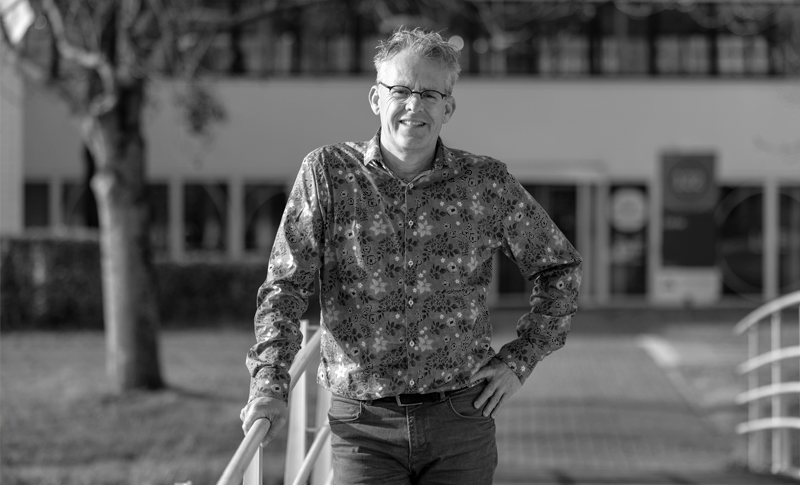
CV
Ernst van den Ende (60) studied Phytopathology at Wageningen University and obtained his PhD in the Phytopathology chair group in 1992. He initially worked as a researcher at various research stations (for fruit, flower bulbs and tree nurseries). Starting when Applied Plant Research was set up, he had various management roles, including as managing director of the Plant Sciences Group (2009–2021). In 2022 he became the managing director of the Animal Sciences Group. He is a member of the Wageningen Management Board.

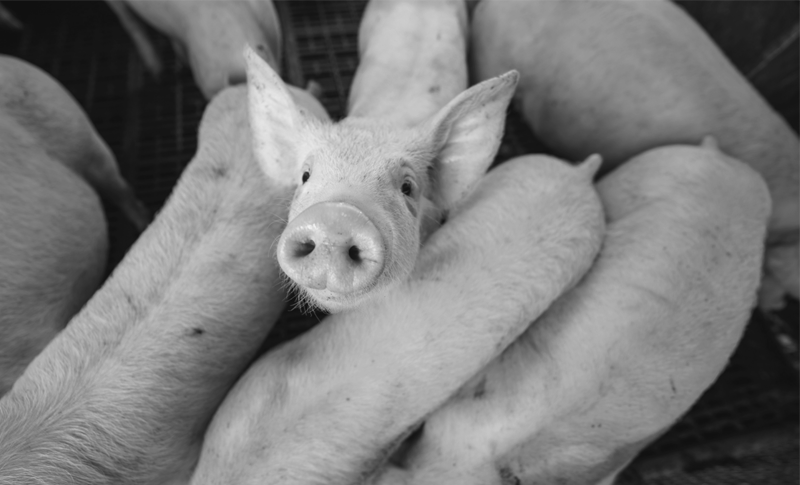 ‘In my opinion, respect for animals in pig farming means no more tail docking, for instance. But how do you then deal with the underlying problem of tail biting? To resolve this problem, you need both a profound understanding of the function and behaviour of the animals and knowledge of the various pig farming systems.’ Text Willem Andrée en Marieke Enter. Photo: Shutterstock
‘In my opinion, respect for animals in pig farming means no more tail docking, for instance. But how do you then deal with the underlying problem of tail biting? To resolve this problem, you need both a profound understanding of the function and behaviour of the animals and knowledge of the various pig farming systems.’ Text Willem Andrée en Marieke Enter. Photo: Shutterstock 